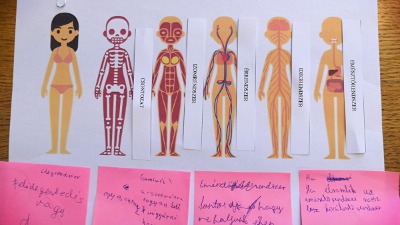The programme is jointly implemented by the NGO and teachers at the schools. Teachers are offered continuous professional support during the programme period. The methodology used is based on brain research, and aims at creating a strong foundation for both school success and future life success with the participating children and their parents. The topics are chosen together, based on the overall aim of the project as well as topical issues. The experiential learning programme is designed by a group of experts, but local implementers have a lot of freedom adjusting it, as all three schools work with different groups (only girls versus mixed gender, ages vary between 10 to 14).
In Eastern European countries, Roma communities have been in a vicious circle of disadvantage, leading to school dropout, subsequent unemployment, early pregnancies and other problems. When creating this programme, our aim was manifold: to offer a sounder basis for the future of these children, to offer help to their parents in raising them, as well as building a future for themselves and to support school teachers who are mainly white and middle-class and have difficulties with communication and acceptance.
We activate the same brain areas to remember and to forecast, so if we have no good memories, we can “manufacture” them by simply talking about our plans, creating "future memories".
Judit Horgas
Salgotarjani Altalanos Iskola Petofi Sandor Tagiskolaja
Kossuth Lajos Gimnazium Kossuth Lajos Altalanos Iskolaja
Petofi Sandor Altalanos Iskola
Kossuth Lajos Gimnazium Kossuth Lajos Altalanos Iskolaja
Petofi Sandor Altalanos Iskola
https://en.futurememory.eu

